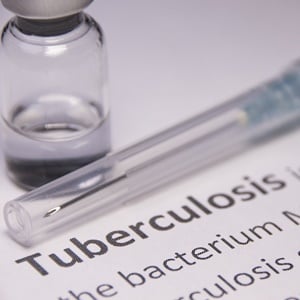
While there is still no conclusive evidence as to the effect that the Covid-19 coronavirus pandemic could have on TB patients, experts in the world’s deadliest infectious disease are calling for innovation in ways of making sure that TB patients access treatment during the pandemic to ensure that they are not left by the wayside during the Covid-19 response.
This is especially important in South Africa, which has been experiencing numerous challenges in the national TB response, which have only been made worse by the pandemic.
These include TB drug shortages, a decrease in the detection of patients with drug-resistant TB (DR-TB) and the shifting of TB support staff to Covid-19-related response teams.
At a webinar hosted this week by the International Union Against Tuberculosis and Lung Disease (The Union), infectious disease specialist Dr Vivian Cox said: “As many of us are painfully aware, prior experience shows that there are significant disruptions of services to TB patients during infectious disease outbreaks.
"There are many examples of this outside of the 2014/15 outbreak of Ebola, such as during the measles and cholera outbreaks."
“During the Ebola outbreak, several studies in the west Africa region showed that closure of primary health facilities contributed to a 53% decrease in TB diagnosis, and there was a doubling in TB mortality in Guinea.”
Cox co-authored an operational guidance document endorsed by the Infectious Diseases Society of Southern Africa (IDSSA) and the Southern African HIV Clinicians Society (SAHCS) last month, meant as a template for countries to use and adapt in their provision of access to treatment for their TB and HIV patients.
It makes recommendations such as that some patients should be provided with medication refills over a longer period (such as a two-month supply) to prevent them from having to go to the hospital monthly and risk cross-infection, and move away from injectable medicine to oral medicine.
“There’s been concern from the beginning as to how Covid-19 would affect our patients with TB and DR-TB. And very quickly it became evident that we need to strike a balance between maintaining delivery of TB services as essential while minimising exposure to health facilities of our patients during the pandemic,” she said.
“The thought was to start to plan for service delivery adaptations at the beginning of the pandemic curve in countries we’re working in, to predict some of the challenges such as drug supply and primary healthcare facility preparedness,” she explained.
The document gives guidelines on the provision of treatment based on drug-sensitive patients (DS-TB), DR-TB patients and patients who are unwell.
The health department said it was in consultation with provinces on adapting these guidelines to fit their settings.
Dr Norbert Ndjeka, director for DR-TB, TB and HIV at the national department of health, pulled no punches when outlining the challenges facing the sector.
“Drug shortages were the first thing, with terizidone being in short supply even before lockdown, followed by levofloxacin. Today the list is long. We’ve asked the provinces to share among themselves until we get new stock.
“The anxiety in terms of scarcity of guidance [for healthcare workers] has also been a problem. People are phoning each other asking what to do. At the same time, there are different responses in different provinces.
“From January 1 till today, for DR-TB, we only have 1 012 cases registered. We used to have 2 000 registered by this time [of the year], so there is a drop in case finding,” he said.
“The bed utilisation rate for multidrug-resistant TB [MDR-TB] was 50% before lockdown. That has dropped even further, and most of our TB support staff have been working on the Covid-19 response since the whole thing started.”
He said the department had sought help from the World Health Organisation, also getting some guidance from the SAHCS and the IDSSA, to draw up an intervention plan for the country’s TB response during the Covid-19 pandemic.
Read: Covid-19: SA’s TB response has already been affected
The department’s intervention approach is five-pronged, focusing on reducing the risk of Covid-19 in HIV and TB patients, diagnosis and treatment of Covid-19 in patients (TB and HIV), ensuring access to TB and HIV drugs, diagnosing and treating HIV and TB in people with Covid-19 and supporting the national Covid-19 response.
He added: “We now have to move into the integration of activities because Covid-19 will be with us for some time.
“There are a lot of initiatives and efforts happening. Provinces are working on testing algorithms that test for Covid-19, HIV and TB at the same time. We also have to integrate in terms of screening for both Covid-19 and TB. As a way forward, it’s very interesting.
We used to say MDR-TB [is lethal for] for HIV patients, now we are saying Covid-19 is lethal for TB, MDR-TB and even HIV [patients].”
 | ||||||||||||||||||||||||||
Vuyo MkizeHealth journalist | City Press | ||||||||||||||||||||||||||
| ||||||||||||||||||||||||||
| Rise above the clutter | Choose your news | City Press in your inbox | ||||||||||||||||||||||||||
| City Press is an agenda-setting South African news brand that publishes across platforms. Its flagship print edition is distributed on a Sunday. |




 Publications
Publications
 Partners
Partners








